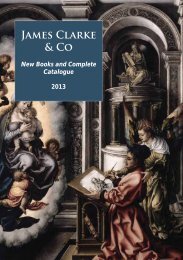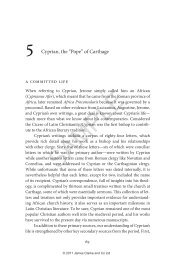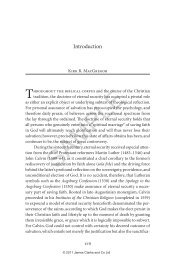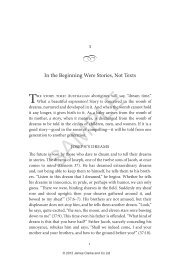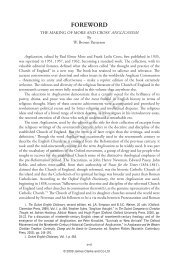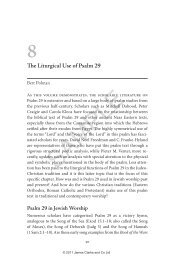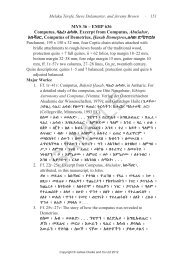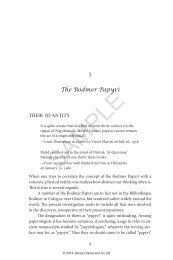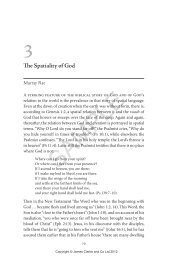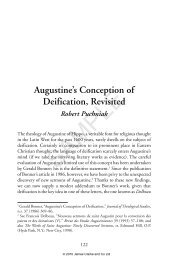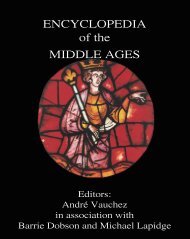Extract from Chapter 1 - James Clarke and Co Ltd
Extract from Chapter 1 - James Clarke and Co Ltd
Extract from Chapter 1 - James Clarke and Co Ltd
You also want an ePaper? Increase the reach of your titles
YUMPU automatically turns print PDFs into web optimized ePapers that Google loves.
The Textual Words of the Analects <strong>and</strong> the Letter to the Galatians<br />
67<br />
it is the last group that is undesirable, for they do not even learn when<br />
forced (Analects 16:9).<br />
The Dao of “Human Becoming” <strong>and</strong> the <strong>Co</strong>nfucian Project<br />
of an Aesthetic Culture<br />
The Analects, a collection of anecdotal sayings of <strong>Co</strong>nfucius <strong>and</strong> his<br />
disciples, is challenging to summarize. I shall examine the key concepts,<br />
terms, <strong>and</strong> sayings in their contexts later in this book. Here I wish to note<br />
the language <strong>and</strong> metaphysical worlds of the Analects, <strong>and</strong> consequently,<br />
to examine the major thrust of its teaching <strong>and</strong> the thesis.<br />
The work of Ames <strong>and</strong> Rosemont is an insightful resource for non-<br />
Chinese readers of the Analects who seek to underst<strong>and</strong> the linguistic <strong>and</strong><br />
philosophic world of the Analects. Ames <strong>and</strong> Rosemont point out that<br />
the Chinese world emphasizes the function of “correlation” <strong>and</strong> not the<br />
function of essence or substance. They describe the <strong>Co</strong>nfucian worldview<br />
as “intrinsic <strong>and</strong> constitutive,” that is,<br />
The Chinese made sense of personal identity “by fitting it into<br />
the cyclical rhythms of natural <strong>and</strong> social process.” . . . The early<br />
Chinese thinkers never seem to have perceived any substances<br />
that remained the same through time; rather in our interpretation<br />
they saw “things” relationally, <strong>and</strong> related differently, at different<br />
periods of time. Dao, the totality of all things (wanwu), is<br />
a process that requires the language of both “change (bian)” <strong>and</strong><br />
“persistence (tong)” to capture its dynamic disposition. This processional<br />
nature of experience is captured in Analects 9:17: “The<br />
Master was st<strong>and</strong>ing on the riverbank, <strong>and</strong> observed, “Isn’t life’s<br />
passing just like this, never ceasing day or night!” 33<br />
SAMPLE<br />
Unlike the Greek metaphysical <strong>and</strong> Judeo-Christian theology that possess<br />
a worldview<br />
where an independent <strong>and</strong> superordinate principle determines<br />
order <strong>and</strong> value in the world while remaining aloof <strong>from</strong> it, . . .<br />
ancient Chinese thinkers did not view language basically as a way<br />
of describing the world, or of communicating one’s beliefs about<br />
it, but rather as a means of guiding actions in the world. 34<br />
33. Ames <strong>and</strong> Rosemont, Analects, 24–26.<br />
34. Ibid., 30–31.<br />
© 2008 <strong>James</strong> <strong>Clarke</strong> <strong>and</strong> <strong>Co</strong> <strong>Ltd</strong>



